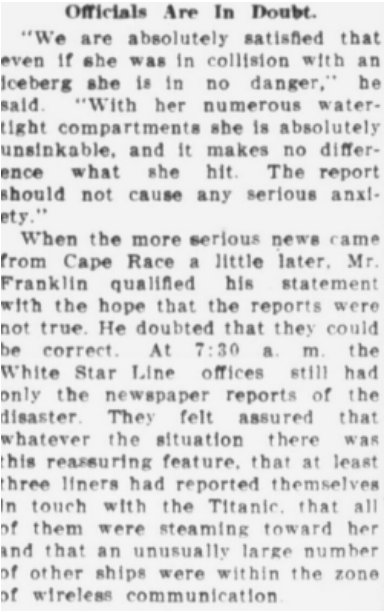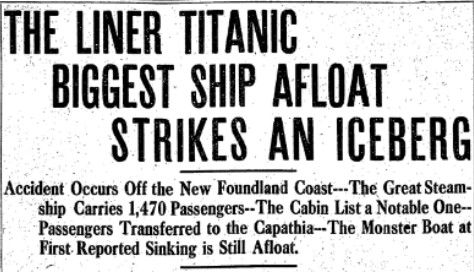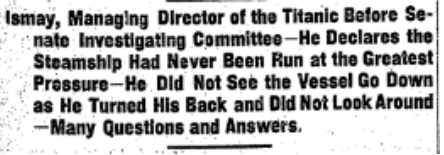From old fires and recent fires to sinking ships and legends being born, this week in history presents us an opportunity to reflect on the events that changed lives all around the world. April seems to be the month that some of the biggest historical events have happened, and this week, in particular, has some of the most impactful. Using the Community History Archives (CHA) I have found news reports from when they happened to show the side of history that isn’t always discussed.
The Digital and Information Age (2000s – Present): Notre Dame Cathedral Fire, 2019
Around 6:20 pm, a fire broke loose on the roof of the Notre Dame Cathedral. Located in Paris, France, the famous landmark has been around since 1345, and is a must-see for any tourist. The building holds many famous artifacts, including items believed to be from the crucifixion of Jesus Christ, and flaunts gorgeous stained glass windows. Notre Dame had been undergoing renovations since 2018, when a fire broke out on April 15th, 2019. Further investigation of the fire believes it to have been caused by either an electrical short circuit or a cigarette butt.
The fire consumed the roof of the building as hundreds of people worked to save it, including around 400 firefighters and many other civilians who helped to get important artifacts out of the building and into safety. It took a long time to extinguish the fire, and firefighters had to be careful with how they managed the situation to ensure that they didn’t damage the structural integrity of the building. Eventually, the fire was under control, but not before the spire of the cathedral had collapsed. The Cathedral is still in the process of reconstruction to this day, and it is anticipated to take many more years before it is fully restored.
To find this piece, I turned to the Cedar Rapids Public Library CHA, as it is my favorite CHA to find more current events. I had to refine my search more than I initially thought. I found many of the results it pulled up were related to the University of Notre Dame and its athletics. Because of this, I added a search filter to exclude words like “basketball”, “football”, and “score”. This gave me 1,165 relevant results instead of the 7,278 results I received with just “notre dame” and “fire”.
The Late 20th Century: Cold War and Globalization (1980s – 2000s): Oklahoma City Bombing, 1995
Just after 9 am on April 19th, 1995, a bomb was detonated in front of the Alfred P. Murrah Federal Building in Oklahoma City, Oklahoma. In an act of domestic terrorism, Timothy McVeigh and Terry Nichols planned and executed the truck bombing, citing the Waco Siege 2 years prior as their reason for the attack. The bomb did immense damage; 168 people were killed, and another 680 were injured. Almost a third of the building was destroyed, and over 300 other buildings and businesses were either damaged or destroyed completely, causing an estimated $625 Million in damages. The bombing is regarded as one of the deadliest terrorist attacks in the history of the United States.
To find this piece I used the Cedar Rapids Public Library CHA because I know the Gazette talks about these big country-wide events. I searched for “Oklahoma City”, and then a few words such as “bomb” and “terrorist”. From here I found relevant results spanning multiple days of coverage of the event from when it first happened to when they were trying the suspects.
Post-War Prosperity and Challenges (1945 – 1980s): Mickey Mantle Plays Debut Game, 1951
On April 17th, 1951, a baseball legend made his debut for the New York Yankees playing against the Boston Red Sox. Mickey Mantle is widely regarded as one of the greatest baseball players of all time, playing as a center fielder for the Yankees his entire 17-year career. During his MLB career, he won seven World Series, 20 all-star awards, a triple crown, a gold glove, and many more awards and games. He was also inducted into the Hall of Fame in 1974.
For this topic, I knew I specifically wanted to find something from his very first game, before everyone knew what a legend he would become. It was difficult and took a lot of trial and error, but eventually, I struck gold. I used the Guernsey Memorial Library CHA because it had the most extensive database in the state of New York, which would help me find a report of the game. I tried various search criteria, but because Mantle was such a legend, there were far too many irrelevant pieces. I eventually decided to try limiting the dates to the week of the game, and then searching for “New York Yankees” and “Red Sox’ ‘. There I found this piece talking about the game and the score of the game. While mantle isn’t a huge focus in this piece, his name is mentioned. I think it’s cool to see that and know that we had no idea what this new player would achieve.
The World Wars Era (1914 – 1945): Titanic Sinks, 1912
The RMS Titanic was a marvel of a vessel, being one of the most impressive ships of its time. The Titanic was on its maiden voyage when it struck an iceberg at night and began to sink. The story of the Titanic itself is pretty well known, so instead I wanted to focus on finding some parts of the story that are less well known. One thing many people don’t realize is that a lot of the reports in the days following were inaccurate and said contrasting things. Panic had taken over the public and newspapers were reporting anything they heard, which led to a lot of misinformation.
One of the first pieces I found was from the day it sank, reporting on the unconfirmed news. While the public began to panic and it was being said that the ship had sunk, the president of White Star claimed numerous times that he didn’t believe the ship had actually sunk. He believed she was still on her way, and that the ship would have been able to withstand any external damage received.
Another piece said that the Titanic didn’t sink as they had previously reported, and it was not only still afloat but continuing its journey. This contrasts with the many reports saying the ship did sink or was in the process of sinking. It seems almost every paper from the days immediately following reported something different.
A captivating piece I found was an interview with a survivor of the disaster recounting his experience as the ship sank. He says he didn’t see the ship sink himself as he was rowing away from the disaster towards the light of another boat because he refused to watch it go down. This was interesting to me because I hadn’t read an interview from someone who experienced it before, and it was exciting to get to read an interview from a person who saw it. This is the perfect example of what makes CHA so special because they give new life to content about things that we may not know otherwise.
To find the pieces I selected, I had to do three different rounds of searching to get the best results. I started in the Quincy Herald Public Library CHA because it is one of the most extensive databases. I searched for just the word “titanic” and received over 3,000 results. To filter out a lot of the things I didn’t need, I added a filter excluding common words that weren’t relevant, such as “lettuce” and “movie”. I also added another filter to include some related words or misspellings that may keep some results from appearing, such as “iceberg” and “struck”. I also included “t1tanic” and “titanio”, because often the letters may be identified incorrectly if the ink is splotchy or other issues cause the search engine to not properly associate the letter. These two added filters turned up a total of 1,341 results, which is still a lot but less than we started with. Finally, I looked at what kinds of content it was showing me and noticed many were about the Titanic movie or the 100th anniversary of the Titanic, which isn’t what I was looking for, so I added “film”, “movie”, and “anniversary” to the filter of excluded words. This brought me down to 860 relevant search results.
There are so many articles on the Titanic, and they are incredibly interesting to look through and see the errors and contradicting reports that came out when the rest of the world didn’t have much information. I didn’t even get close to looking at even half of the pieces on it that you can find through the CHA. I highly encourage anyone interested in the Titanic to spend some time looking at these pieces because they are truly incredible. Another fascinating piece I suggest you check out is “A Titanic Amount of Misinformation” written right here at Advantage which provides a deeper dive into the contradicting reports.
The Industrial Revolution to the Early 20th Century (1824 – 1914): The Great San Francisco Earthquake, 1906
At 5:12 AM, on April 18, 1906, San Francisco began to shake. A 7.9 magnitude earthquake occurred on the San Andreas Fault line, causing the quake to be felt for miles and miles, but the epicenter of it all was in San Francisco. More devastation quickly followed. During the earthquake, gas lines were broken, power lines had fallen, and lanterns were toppled as the ground moved below the city. Massive fires began to break out all around the city of San Francisco. The fires lasted three days and destroyed over 80% of the city, causing $350 million (almost $9 billion today) in damages. The earthquake and following fires resulted in an estimated 3,000 deaths.
As a result of this disaster, much of the old San Francisco is no longer there. Most of the city had to be rebuilt, but there are a few of the old buildings that remain. Additionally, through studying this earthquake, scientists were able to develop the Elastic Rebound Theory, which is still used today to model the earthquake cycle.
To find these pieces, I did multiple rounds of searches within the Moline Public Library CHA. I eventually ended with 644 results by narrowing my dates to a single decade and then looking through the results to find words I could exclude from the search to get only the relevant results.
These historical events are some of the most well-known, but by looking through historical documents we can learn new information and gain insight into the lives of the people living through them. The best thing about history is that there is always something new to learn. Join me next week to explore more of history’s hidden gems and timeless tales!




